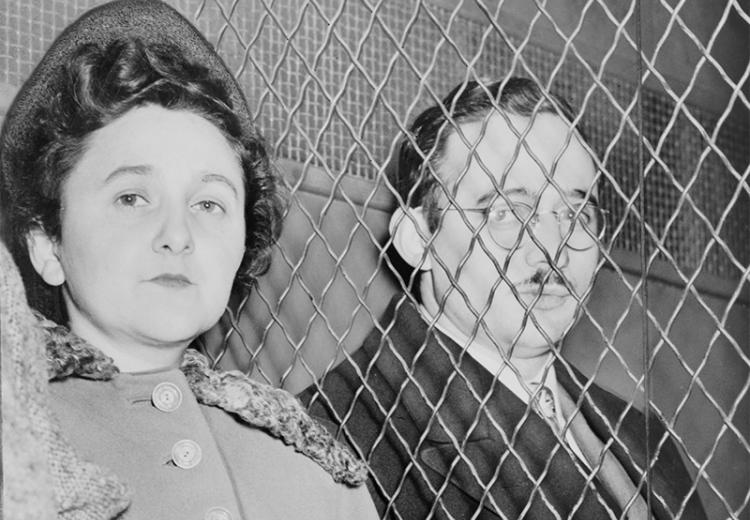Lesson 1: Soviet Espionage in America

Julius and Ethel Rosenberg were convicted of supplying the Soviet Union with nuclear bomb secrets, and subsequently executed.
The hunt for Communists in the United States clearly reached the point of hysteria by the early 1950s, but what is often overlooked is that it had its origins in a very real phenomenon. The opening of the Soviet archives in the 1990s, and the declassification of certain intercepted Soviet messages from the late 1940s, indicates that Soviet agents had penetrated the U.S. government before and during World War II, in some cases at very high levels. One particularly noteworthy instance of this involved Ethel and Julius Rosenberg, who were convicted in 1951 of passing information about the atomic bomb to the Kremlin. The resulting trial, conviction, and death sentence of this young, middle-class couple divided the nation, and kept the issue of Soviet espionage before the American public for years to come.
This lesson will expose students to recently declassified FBI documents and transcripts of the Rosenberg trial. It will encourage them to think seriously about the extent of the Soviet espionage network in America, thus setting the stage for a proper understanding of later hearings by the House Un-American Activities Committee and Joseph McCarthy.
Guiding Questions
Why was Soviet espionage such an important issue in the late 1940s and early 1950s?
Learning Objectives
Identify the primary subjects of FBI investigation on espionage charges
Explain the Venona project, including how it worked and what purpose it served
Articulate the reasons why the Rosenbergs were convicted of espionage
